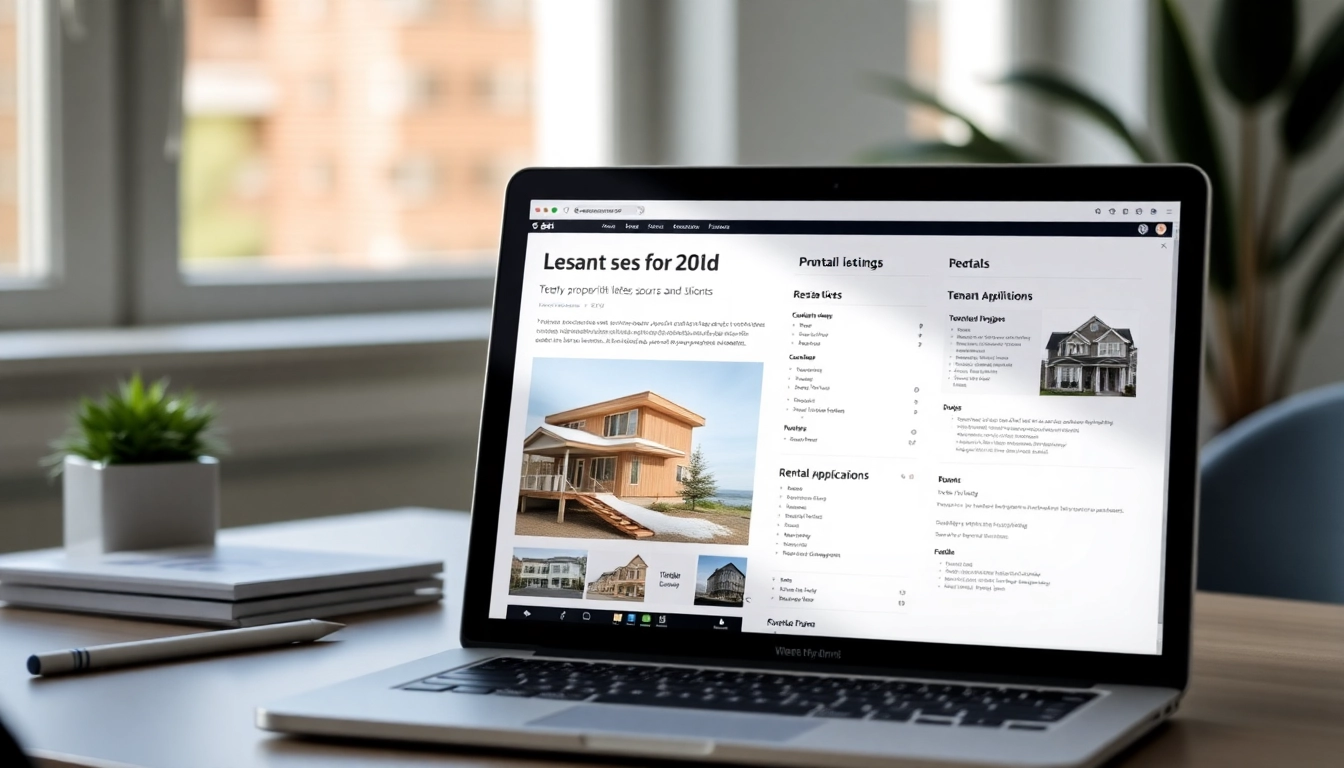Understanding Rental Property Management Basics
Rental property management is a multifaceted field that plays a crucial role in maintaining the value of rental investments, ensuring tenant satisfaction, and optimizing financial returns. For landlords and property owners, understanding the basics of rental property management is essential in navigating their roles effectively. This article explores the intricacies of rental property management, from its fundamental aspects to advanced technologies, addressing challenges and best practices along the way.
What is Rental Property Management?
Rental property management refers to the operational processes involved in managing residential, commercial, or industrial properties that are rented out to tenants. It encompasses a wide range of activities aimed at maximizing profitability while maintaining tenant relations. Property management can be handled by individual owners or a professional property manager, depending on the scale of the investment and the owner’s ability to manage day-to-day operations.
The Role of a Property Manager
A property manager acts as an intermediary between property owners and tenants, undertaking responsibilities that range from marketing properties and screening tenants to managing maintenance and ensuring compliance with legal regulations. Key roles of a property manager include:
- Tenant Screening: Evaluating potential tenants through credit checks, rental history, and employment verification to ensure reliable and responsible occupants.
- Lease Management: Creating and managing lease agreements that outline the terms and conditions of tenancy, including rent due dates, maintenance obligations, and rules.
- Rent Collection: Ensuring timely collection of rental payments, addressing late payments, and establishing payment methods.
- Maintenance and Repairs: Coordinating regular maintenance, emergency repairs, and property inspections to ensure the property remains in good condition.
- Financial Management: Managing the property’s budget, including expenses and income, while providing owners with detailed financial reports.
Essential Services in Rental Management
The services provided in rental property management can vary widely based on the property type and owner preferences. Essential services typically include:
- Marketing and Advertising: Utilizing various channels to promote rental properties, including online listings, social media, and traditional media.
- Tenant Placement: Facilitating the leasing process and ensuring the property is occupied by suitable tenants.
- Maintenance Coordination: Establishing relationships with contractors and service providers to handle repairs efficiently.
- Compliance and Legal Management: Keeping up with local landlord-tenant laws to avoid legal issues and ensure compliance.
- Eviction Coordination: Handling the eviction process, which includes everything from filing necessary paperwork to representing the landlord in court.
Key Challenges in Rental Property Management
Dealing with Tenant Issues
One of the most significant challenges in rental property management is managing tenant relations. Issues such as late rent payments, disputes between tenants, and lease violations can create tension and require effective conflict resolution strategies. Establishing clear communication channels and having policies in place for handling grievances can help mitigate these issues.
Managing Maintenance and Repairs
Maintenance issues can arise unexpectedly and often require immediate attention. Property managers must be adept at prioritizing repair needs, budgeting for regular maintenance, and responding to tenant requests in a timely manner. Failing to address maintenance problems can lead to tenant dissatisfaction and increased turnover rates.
Financial Management of Rental Properties
Maintaining the financial health of a rental property requires careful planning and regular monitoring. This includes understanding and managing expenses such as property taxes, insurance, maintenance costs, and management fees. Keeping an accurate record of all financial transactions and generating regular financial reports for stakeholders can help in making informed decisions.
Best Practices for Successful Rental Property Management
Effective Marketing Techniques
In order to attract and retain quality tenants, implementing effective marketing strategies is essential. Utilizing online platforms such as property listing websites, social media, and even virtual tours can significantly enhance visibility. Crafting compelling property descriptions and providing high-quality images can also help in showcasing rental units effectively.
Utilizing Technology for Efficiency
Incorporating technology into rental property management can lead to significant efficiencies. Property management software can automate various tasks, including rent collection, maintenance requests, and tenant communications. Tools like online portals enhance tenant experience by allowing easy access to information and services.
Creating Strong Tenant Relationships
Building positive relationships with tenants is crucial for successful management. This can be achieved through consistent communication, addressing tenant needs promptly, and providing excellent customer service. Regular check-ins can also foster a sense of community and encourage tenants to voice any concerns before they escalate into major issues.
Advanced Tools and Technologies for Rental Property Management
Property Management Software Options
Several software options are available for property managers that can streamline operations. Programs like AppFolio, Buildium, and Rentec Direct offer comprehensive features for managing leases, tenants, and finances. Choosing the right software depends on the specific needs of the property and the user experience provided by the tool.
Online Payment and Maintenance Request Systems
Implementing online payment systems simplifies the rent collection process for both tenants and property managers. Tenants can easily pay their rent via various online platforms, reducing late payments and enhancing cash flow. Maintenance request systems allow tenants to submit repairs and updates electronically, making it easier for property managers to track and address these needs efficiently.
Data Analytics for Property Performance
Leveraging data analytics tools can provide insights into property performance and tenant behavior. By analyzing metrics like occupancy rates, rental income trends, and tenant turnover, property managers can make data-driven decisions for improving operations and maximizing profitability.
Measuring Success in Rental Property Management
Key Performance Indicators to Monitor
To evaluate the effectiveness of rental property management strategies, it is essential to monitor key performance indicators (KPIs). Common KPIs include:
- Occupancy Rate: The percentage of occupied rental units in a property, which directly impacts revenue.
- Tenant Turnover Rate: The rate at which tenants vacate the property, indicating tenant satisfaction and property desirability.
- Average Rent Collection Rate: The percentage of rent successfully collected each month, which highlights cash flow efficiency.
- Maintenance Response Time: The average time taken to respond to tenant maintenance requests, which reflects service quality.
How to Improve Your Rental Income
Increasing rental income can be approached through various strategies, including adjusting rent based on market analysis, minimizing vacancies through effective marketing, and enhancing property features. Regular upgrades to amenities and maintaining curb appeal can justify higher rental prices and attract quality tenants.
Evaluating Overall Property Success
The success of rental property management can also be evaluated through tenant feedback and satisfaction surveys. Gathering insights directly from tenants can provide valuable information on areas for improvement. Additionally, conducting regular financial analysis to compare projected income against actual performance can highlight the effectiveness of management strategies and inform future decisions.



